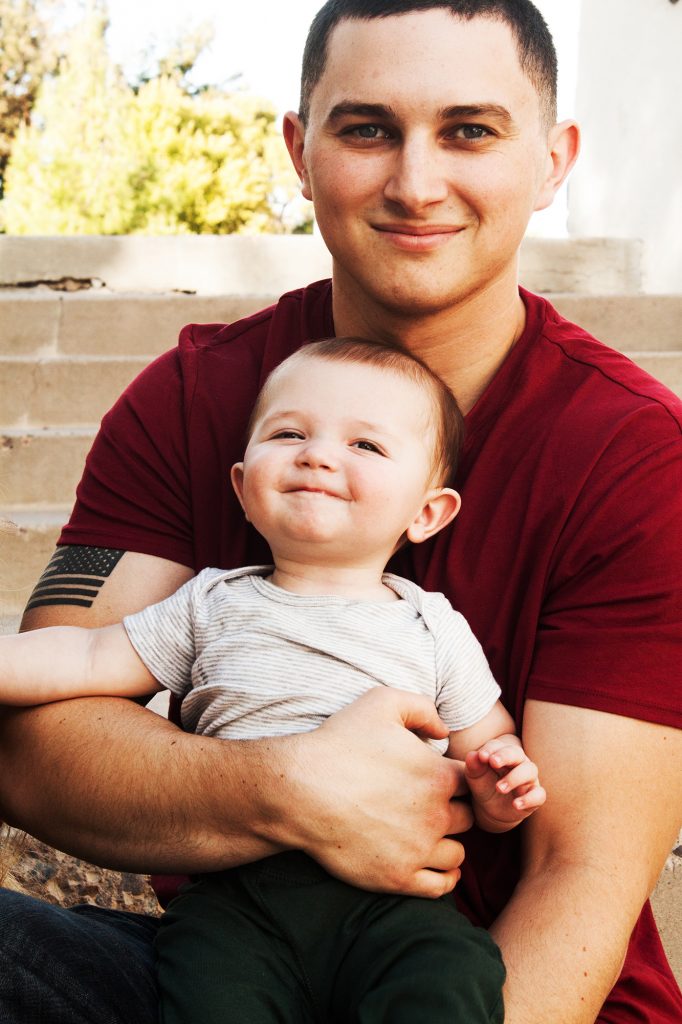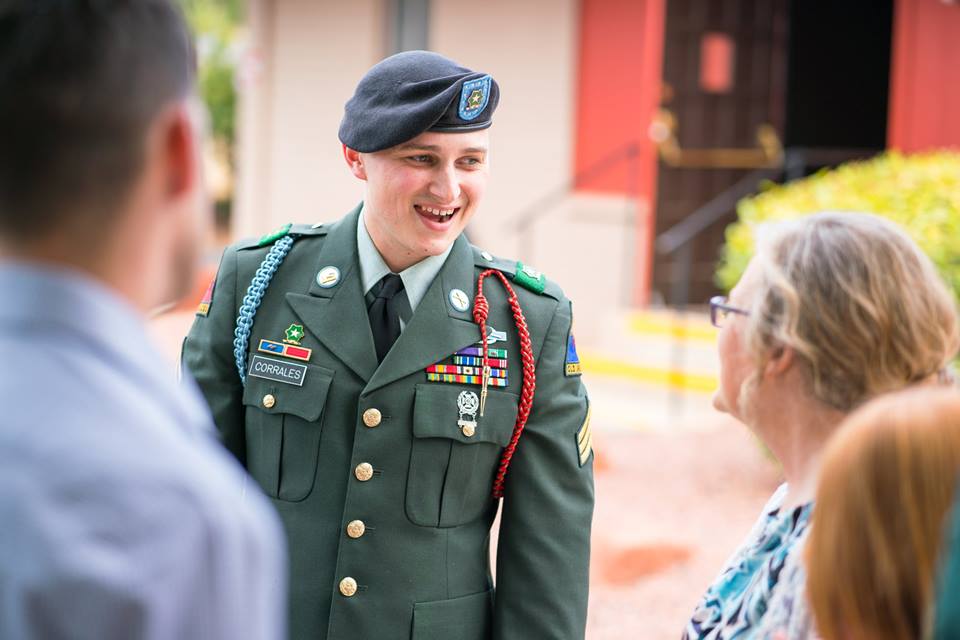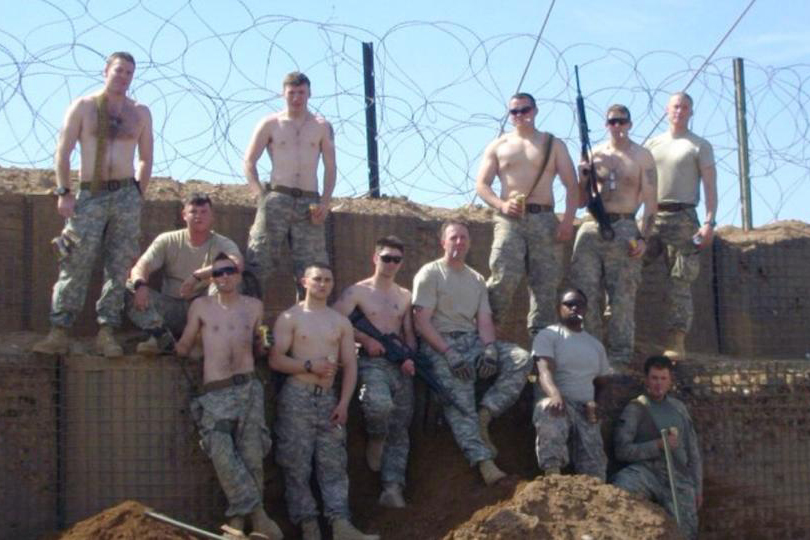By Carly Banks
NAU Communications
Brandon Corrales didn’t see himself attending college. Not because he didn’t want to, but because he didn’t expect to live that long.
After graduating from high school, Corrales enlisted in the military at the age of 18. He signed up to be in the Army infantry—if he was going to serve, he wanted to be a grunt on the ground in the middle of the action. Not long after enlisting, he was deployed to Mosul, Iraq.
He thought he was ready for what came next—he had completed his training and heard plenty of stories about what to expect on the ground—but nothing could have prepared him for the horrors of war.
February 12, 2010, became a day Corrales will never forget. While manning his machine gun, an insurgent threw a Molotov cocktail in his direction. Before he could react, the petrol bomb exploded, sending broken glass in every direction and setting Corrales on fire from head to toe. It took 20 seconds for a fellow soldier to come to the rescue. In retrospect, it wasn’t long at all. But to Corrales, the insurmountable pain seemed to last an eternity.
The second-degree burns that covered his body would eventually heal, but seeing a bus full of innocent children blow up is something that would forever haunt him. He couldn’t help but think of his own young son back home in Arizona.
It wasn’t long before Corrales ended up back in the hospital—the result of a massive IED explosion. Despite several surgeries, he was left with permanent brain damage. This, in combination with suffering from post-traumatic stress disorder, ended his deployment and medically retired him from the Army, but not before being awarded the Purple Heart Medal and the coveted Combat Infantryman Badge.

After returning home to Dewey-Humboldt, he did what any 22-year-old medically discharged veteran would do: try to pick up the pieces and resume a “normal” life with his wife and son. In addition to taking care of his growing family, that meant pursuing a degree. Since being involved in sports as a kid, and competing in bodybuilding competitions throughout high school, Corrales has always had a passion for fitness and the human body. Despite the toll war took on his body, he enrolled in Northern Arizona University’s Fitness Wellness program.
Raised in Flagstaff, Corrales was excited to attend classes on campus, even if it meant making the hour-and-a-half commute twice a day, three times a week. He was not excited, however, about spending that much time away from his family.
“Balancing family and school life was probably the most difficult part of going to college,” Corrales said. “I was away from my family a lot when I was in the military, whether on deployment or in a field exercise for weeks at a time. Therefore, since getting out of the Army, I’ve done my best to be home with them whenever possible.”
Despite his traumatic brain injury making him learn and complete assignments at a much slower pace than normal, with the help of NAU’s Disability Resources, Corrales made the dean’s list every semester he was in college, never dropping below a 4.0 GPA.
After graduation, he plans to offer his knowledge of fitness wellness as a personal trainer, and hopefully, one day, a teacher.
“I just feel lucky to still be alive today, so that is why I put my heart and soul into everything I do, whether it is school, treatment at Veteran Affairs or being a father and husband,” he said. “Thanks to NAU, I can confidently say I am ready for whatever the future brings.”





